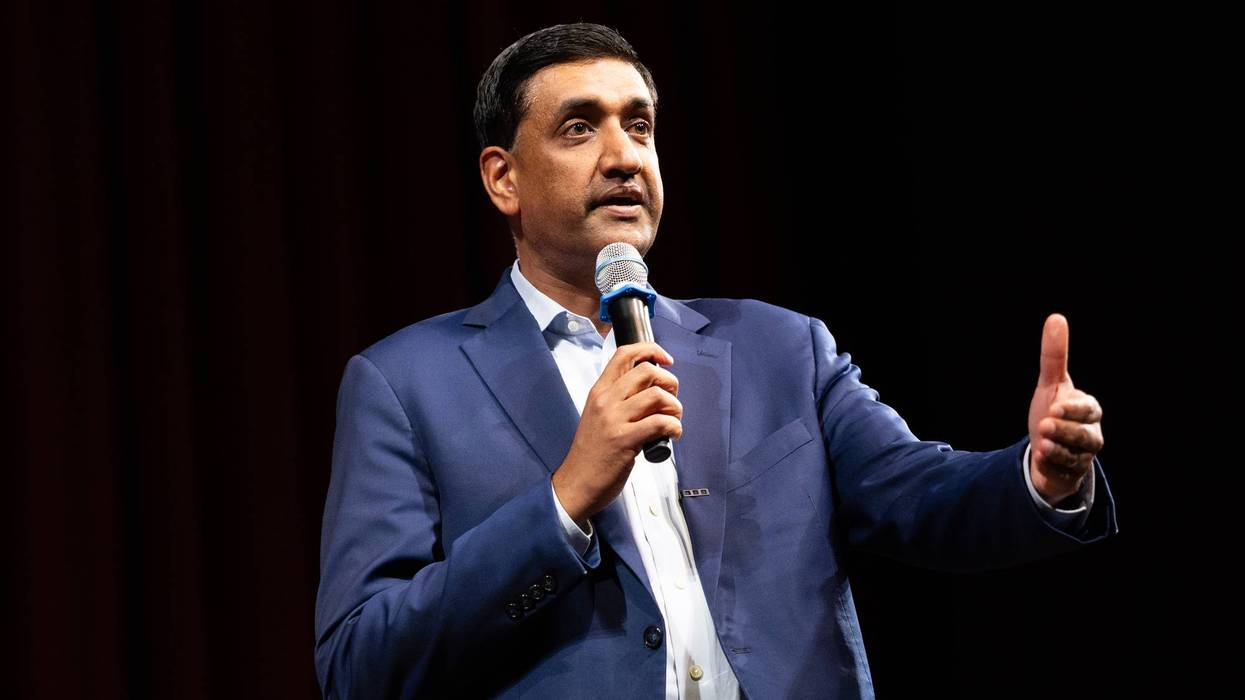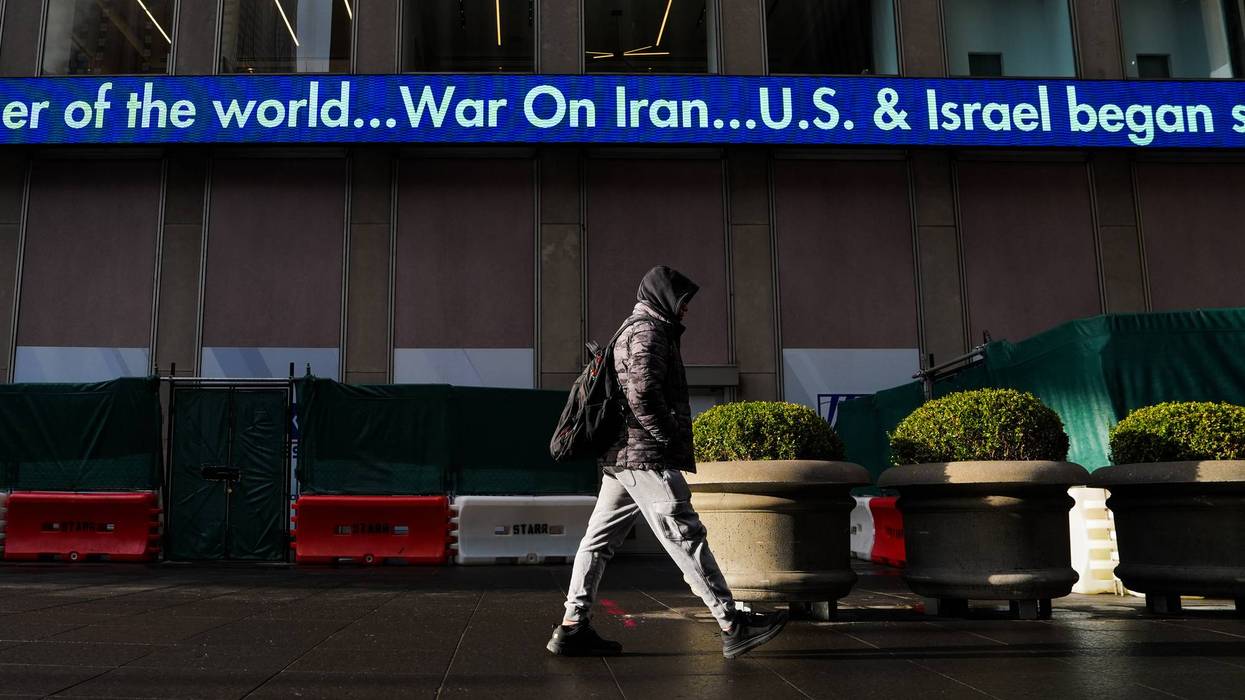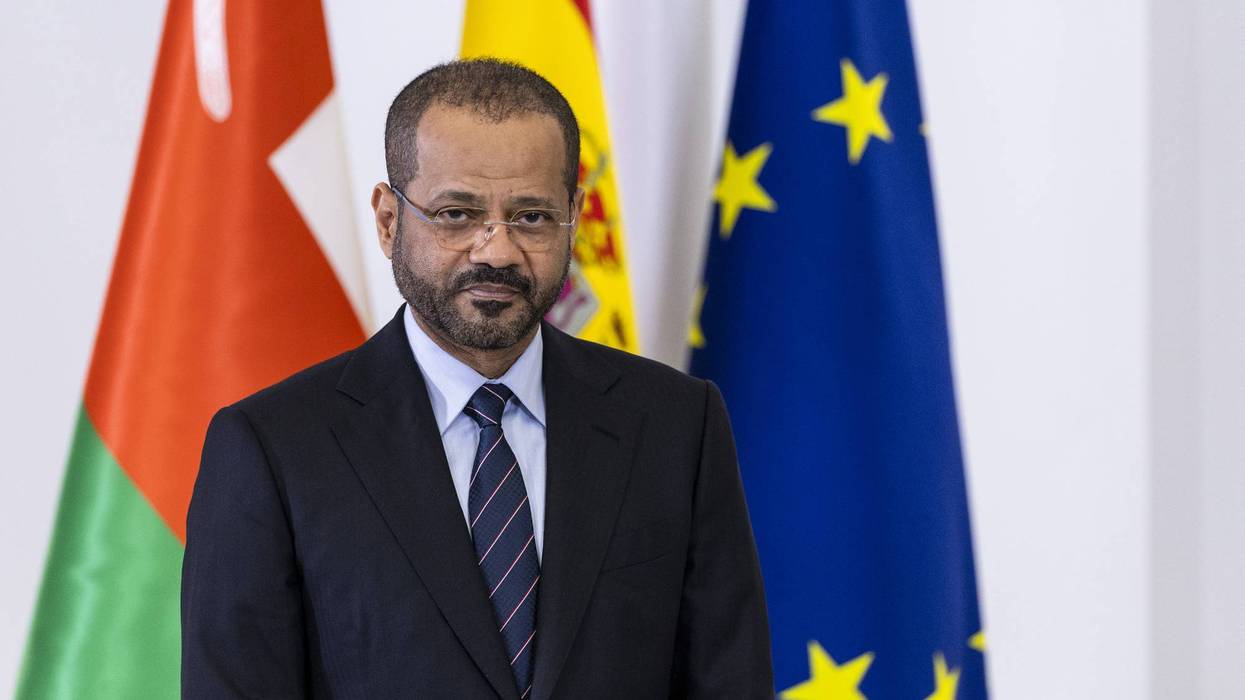February, 27 2019, 11:00pm EDT
Nuclear Crisis Group Reacts to Aborted Trump-Kim Summit
Experts say aborted summit is a disappointment, but must not be the end of negotiations
WASHINGTON
This morning, U.S. President Donald Trump and North Korean Leader Kim Jong-Un abruptly ended their summit in Hanoi with no deal. Progress remains possible, however, and negotiators must be put right back to work to hammer out a deal that can gain the support of both countries.
Jon Wolfsthal, director of the Nuclear Crisis Group, an international task force of top former diplomats and senior military officials working to defuse nuclear flashpoints around the globe, issued the following statement in response to today's turn of events:
"The aborted summit between Trump and Kim is a disappointment, but it must not be the end of efforts to negotiate an agreement with North Korea. Pyongyang's nuclear and missile programs continue to represent a major challenge to global security, and Trump must empower U.S. negotiators to work out a deal that reduces the risk of nuclear confrontation and serves the security interests of the United States, North Korea and the world.
"Contrary to official statements issued in Hanoi, it appears President Trump - at the urging of National Security Advisor John Bolton - moved the goalposts and blew up the meeting with last minute demands North Korea was not prepared to accept. While it's right to say you must be willing to walk away from a bad deal, the Administration should not walk away from the negotiating process. Progress will take time, and there remains a strong possibility for the negotiators to work and complete a deal over the next few months.
"What is clear is that diplomacy, not threats, holds the key to defusing the nuclear threat on the Korean peninsula. There is a real chance for freezing and eventually rolling back North Korea's nuclear program, but no one should expect this to be quick or easy."
In June 2017, Global Zero's international Nuclear Crisis Group released a set of urgent recommendations to avoid the use of nuclear weapons and called on national leaders to act to reduce the unacceptably high risk of nuclear conflict. The report called for the United States and North Korea to begin immediate discussions, without any preconditions, to reduce the risk of conflict and advocated for these immediate steps, which could serve as a roadmap for follow-on negotiations:
- Refrain from nuclear threats and adopt nuclear no-first-use statements;
- Suspend flights by US strategic bombers and visits by strategic submarines in return for key commensurate restraints by North Korea;
- Resume humanitarian assistance to North Korea;
- Agree not to adopt new sanctions on North Korea;
- Fully and consistently implement communication links between DPRK and ROK military leaders;
- Refrain from provocative military actions that could escalate to nuclear conflict; and
- Reaffirm the September 19, 2005 Six-Party joint statement on denuclearization as part of multilateral negotiations.
Additionally, the Nuclear Crisis Group urged these follow-up steps:
- Pursue a permanent peace regime;
- End production/separation of plutonium and highly-enriched uranium under verification;
- Expand and enhance Track-II discussions by North Korea, the United States, and other regional states;
- Agree to a non-nuclear deployment pledge for the Korean peninsula from the United States, and North and South Korea;
- Create UN-endorsed multilateral security guarantees for North and South Korea from China and the United States;
- Implement progressive sanctions relief and economic assistance in parallel with progress in denuclearization;
- Suspend US-ROK joint military drills, establish US-DPRK diplomatic relations, and complete economic and energy assistance at the time North Korea's denuclearization is fully implemented and verified (by the five parties in the Six-Party Talks and the IAEA); and
- Pursue negotiations to establish Northeast Asia as a nuclear-weapons-free zone.
View the full set of recommendations here: https://bit.ly/NCGreport
A full list of NCG members can be found here: https://bit.ly/2KRMBpC
For interviews with Global Zero leaders, please contact Brett Abrams at brett@unbendablemedia.com.
Global Zero is the international movement for the elimination of nuclear weapons. It is led by more than 300 eminent world leaders and backed by a half a million citizens worldwide. For more information, please visitwww.globalzero.org.
LATEST NEWS
Demanding Action From Congress, Khanna Says 'The American People Are Tired of Regime Change Wars'
"We don't want to be at war with a country of 90 million people in the Middle East," said Democratic US Rep. Ro Khanna.
Feb 28, 2026
US Rep. Ro Khanna on Saturday demanded swift action from Congress to stop the Trump administration's unauthorized military assault on Iran, saying in a video posted to social media that "the American people are tired of regime change wars that cost us billions of dollars and risk our lives."
"We don't want to be at war with a country of 90 million people in the Middle East," said Khanna (D-Calif.), calling on Congress to reconvene for a vote on Monday.
"Every member of Congress should go on record today on how they will vote on Thomas Massie and my War Powers resolution," Khanna added, referring to the Kentucky Republican who is co-leading the measure.
If passed, the resolution would require the president "to terminate the use of United States Armed Forces from hostilities against the Islamic Republic of Iran or any part of its government or military, unless explicitly authorized by a declaration of war or specific authorization for use of military force against Iran."
Watch Khanna's remarks:
Trump has launched an illegal regime change war in Iran with American lives at risk. Congress must convene on Monday to vote on @RepThomasMassie & my WPR to stop this. Every member of Congress should go on record this weekend on how they will vote. pic.twitter.com/tlRi3Vz849
— Ro Khanna (@RoKhanna) February 28, 2026
Days prior to the US-Israeli attack on Iran, the House Democratic leadership announced it would force a vote next week on the Khanna-Massie War Powers resolution following reports that top Democrats were slowwalking the measure behind closed doors.
Senate Democrats also said they planned to vote next week on a War Powers resolution led by Sens. Tim Kaine of Virginia.
In a statement on Saturday, Kaine called the US attacks on Iran "illegal" and said that "every single senator needs to go on the record about this dangerous, unnecessary, and idiotic action."
“Has President Trump learned nothing from decades of US meddling in Iran and forever wars in the Middle East? Is he too mentally incapacitated to realize that we had a diplomatic agreement with Iran that was keeping its nuclear program in check, until he ripped it up during his first term?" Kaine asked. "These strikes are a colossal mistake, and I pray they do not cost our sons and daughters in uniform and at embassies throughout the region their lives. The Senate should immediately return to session and vote on my War Powers resolution."
The chances of a War Powers resolution getting through the Republican-controlled Congress are virtually nonexistent, even though the American public overwhelmingly opposes US military action against Iran. Senate Majority Leader John Thune (R-SD) and House Speaker Mike Johnson (R-La.) both issued statements applauding Trump for the unauthorized Saturday attacks.
Cavan Kharrazian, senior policy adviser to the advocacy group Demand Progress, said that "Trump has no authority to launch another war on his own."
"The Constitution is clear. The need for a War Powers resolution is clear. Congress decides when this country goes to war, not the president," said Kharrazian. "Next week, every member of Congress will have to choose. Side with illegal, endless war, or side with the American people and reject yet another regime change war in the Middle East. Like with Iraq, the choice they make will echo loudly for years to come.”
Keep ReadingShow Less
'The Behavior of Rogue States': Global Revulsion as US and Israel Launch War on Iran
"The attacks on Iran by Israel and the United States are illegal, unprovoked, and unjustifiable," said Jeremy Corbyn, an independent member of the UK Parliament.
Feb 28, 2026
Elected officials, activists, and experts around the world voiced horror and outrage Saturday as US President Donald Trump and Israeli Prime Minister Benjamin Netanyahu jointly launched an illegal war on Iran with the explicit goal of toppling the nation's government, sparking chaos throughout the Middle East.
The wave of bombings, expected to mark the beginning of a wider assault, spurred airspace closures and flight cancellations across the region as countries braced for the fallout. While European leaders offered milquetoast responses to the unlawful military attack and Canadian and Australian officials openly endorsed it, leftist politicians and others unequivocally condemned the US and Israel as the aggressors.
"The attacks on Iran by Israel and the United States are illegal, unprovoked, and unjustifiable," said Jeremy Corbyn, an independent member of the British Parliament and former leader of the UK Labour Party. "Peace and diplomacy was possible. Instead, Israel and the United States chose war."
"This is the behavior of rogue states—and they have jeopardized the safety of humankind around the world with this catastrophic act of aggression," Corbyn added. "Our government must condemn this flagrant breach of international law, and urgently pursue a foreign policy based on justice, sovereignty, and peace."
Progressive International co-founder Yanis Varoufakis, the former finance minister of Greece, echoed Corbyn's criticism of the US and Israel as "rogue states."
"Israel and the USA," he wrote on social media, "have started a war not against Iran but against the whole world. We stand with Iranians, with humanity, against the notion that Israel and the US can bomb anyone their fancy takes them to bomb."
Badr Albusaidi, the foreign minister of Oman and the mediator of recent US-Iran talks, said he was "dismayed" by news of the US-Israel attacks on Iran, which were quickly followed by reports of horrific atrocities. Albusaidi said hours before the bombs started falling on Iran that a diplomatic resolution was within reach.
"Active and serious negotiations have yet again been undermined," Albusaidi lamented on Saturday. "Neither the interests of the United States nor the cause of global peace are well served by this. And I pray for the innocents who will suffer. I urge the United States not to get sucked in further."
Leftist Colombian President Gustavo Petro said he believes "President Donald Trump has made a mistake today" and implored the "helpless United Nations" to "convene immediately" in response to the US-Israel attacks and retaliation by Iran and allied groups in the region.
Iran vowed a "crushing" response to the US-Israeli onslaught, firing drones and missiles at Israel and pledging to hit US military installations in the region.
Al Jazeera reported that "Iran has targeted United States assets across the Gulf Arab states in retaliation for a huge joint attack on Iran by the US and Israel, as the region’s worst fears of being ignited in the flames of a sustained war loom."
"The Iranian government on Saturday confirmed its attacks on several targets, according to the Fars news agency, including Bahrain, Kuwait, Qatar, and the United Arab Emirates, where US airbases are hosted," the outlet noted.
Keep ReadingShow Less
Oman's Foreign Minister Said US-Iran Deal Was 'Within Our Reach.' Then Trump Started Bombing
"The Omani FM decided to go public," suggested one observer, "so that the American people knew that peace was within reach when Trump instead opted for war."
Feb 28, 2026
Hours before President Donald Trump announced his decision to bomb Iran and pursue the overthrow of its government, the foreign minister of Oman appeared, in person, on one of the most prominent US television news programs to declare that a diplomatic breakthrough was possible.
"I can see that the peace deal is within our reach," Badr Albusaidi, the mediator of recent talks between the US and Iran, told "Face the Nation" host Margaret Brennan on Friday. "I'm asking to continue this process because we have already achieved quite a substantial progress in the direction of a deal. And the heart of this deal is very important, and I think we have captured that heart."
Pressed for specifics, Albusaidi said that Iran committed during the talks to renounce the possibility of amassing "nuclear material that will create a bomb"—a pledge that Trump claimed Iran refused to make as part of his justification for Saturday's strikes.
"This is something that is not in the old deal that was negotiated during President Obama's time," Albusaidi said, referring to the 2015 nuclear accord that Trump ditched during his first term in the White House. "This is something completely new. It really makes the enrichment argument less relevant, because now we are talking about zero stockpiling. And that is very, very important, because if you cannot stockpile material that is enriched, then there is no way you can actually create a bomb, whether you enrich or don't enrich. And I think this is really something that has been missed a lot by the media, and I want to clarify that from the standpoint of a mediator."
"There is no accumulation, so there would be zero accumulation, zero stockpiling, and full verification," the Omani foreign minister continued. "Full and comprehensive verification by the [International Atomic Energy Agency]."
In a social media post following the interview, Albusaidi reiterated that a deal "is now within reach" and implored all parties to "support the negotiators in closing the deal." Prior to Saturday's attacks, additional US-Iran talks were scheduled for next week.
Watch the full segment, which critics highlighted as evidence that the US-Israeli attacks on Saturday were aimed at forestalling a diplomatic resolution:
Trita Parsi, executive vice president of the US-based Quincy Institute for Responsible Statecraft, wrote in response to Albusaidi's remarks that "the Omanis are famously cautious."
"The Omani FM going on CBS to reveal what has actually been achieved in the negotiations is quite unprecedented. And what has been achieved is significant—Trump can indeed declare victory. Listen to this segment—it goes way beyond what Obama achieved," Parsi wrote. "But everything indicates that Trump won't take yes for an answer. That he will start a war of choice very soon."
"Which is probably why the Omani FM decided to go public," Parsi added. "So that the American people knew that peace was within reach when Trump instead opted for war."
According to one survey released earlier this month, just 21% of Americans support "the United States initiating an attack on Iran under the current circumstances."
Keep ReadingShow Less
Most Popular


